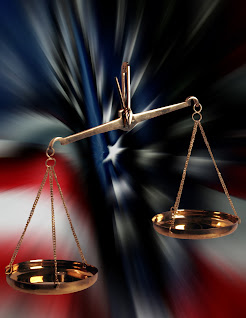Equal Protection Clause & The Class-Of-One Claim
Under federal law, what is a "Class-of-One," racial-discrimination claim? Here’s my point of view (NOTE: please read our DISCLAIMER before proceeding).
Section 1983 is not itself a source of substantive rights, but merely provides a method for vindicating federal rights elsewhere conferred. Albright v. Oliver, 510 U.S. 266, 271, 114 S.Ct. 807, 811 (1994) quoting Baker v. McCollan, 443 U.S. 137, 144, n. 3, 99 S.Ct. 2689, 2694, n. 3 (1979)) (internal quotation marks omitted). Section 1983 and other federal civil rights statutes address liability in favor of persons who are deprived of rights, privileges, or immunities secured to them by the Constitution. Carey v. Piphus, 435 U.S. 247, 253, 98 S.Ct. 1042 (1978) (quoting Imbler v. Pachtman, 424 U.S. 409, 417, 96 S.Ct. 984, 996 (1976)) (internal quotation marks omitted).
The first inquiry in any Section 1983 suit, therefore, is whether the plaintiff has been deprived of a right secured by the Constitution and laws. Baker, 443 U.S. at 140, 99 S.Ct. 2689 (1979) (internal quotation marks omitted).
CLASS-OF-ONE CLAIM
The Equal Protection Clause of the Fourteenth Amendment (hereinafter, "Equal Protection Clause") is a right secured by the Constitution. The central purpose of the Equal Protection Clause is the prevention of official conduct discriminating on the basis of race. When an equal protection claim is premised on unique treatment rather than on a classification, the Supreme Court has described it as a "class of one" claim. North Pacifica LLC v. City of Pacifica, 526 F.3d 478, 486 (9th Cir. 2008) (citing Vill. of Willowbrook v. Olech, 528 U.S. 562, 564, 120 S.Ct. 1073, 145 L.Ed.2d 1060 (2000) (per curiam)).
THE ELEMENTS
The Equal Protection Clause of the Fourteenth Amendment (hereinafter, "Equal Protection Clause") is a right secured by the Constitution. The central purpose of the Equal Protection Clause is the prevention of official conduct discriminating on the basis of race. When an equal protection claim is premised on unique treatment rather than on a classification, the Supreme Court has described it as a "class of one" claim. North Pacifica LLC v. City of Pacifica, 526 F.3d 478, 486 (9th Cir. 2008) (citing Vill. of Willowbrook v. Olech, 528 U.S. 562, 564, 120 S.Ct. 1073, 145 L.Ed.2d 1060 (2000) (per curiam)).
THE ELEMENTS
Generally, to make a Class-Of-One Equal Protection Claim, a plaintiff must establish that defendants: (1) intentionally treated him (2) differently than other similarly situated individuals (3) without a rational basis. Gearhart v. Lake Cnty., Mont., 637 F.3d 1013, 1022 (9th Cir. 2011); Reiber v. City of Pullman, 918 F.Supp.2d 1091, 1105 (E.D. Wash. 2013).
Learn More
If you would like to learn more, then consider contacting an experienced Washington State Discrimination Attorney as soon as possible to discuss your case. Please note: the information contained in this article is not offered as legal advice and will not form an attorney-client relationship with either this author or Williams Law Group, PS; please see our DISCLAIMER.









